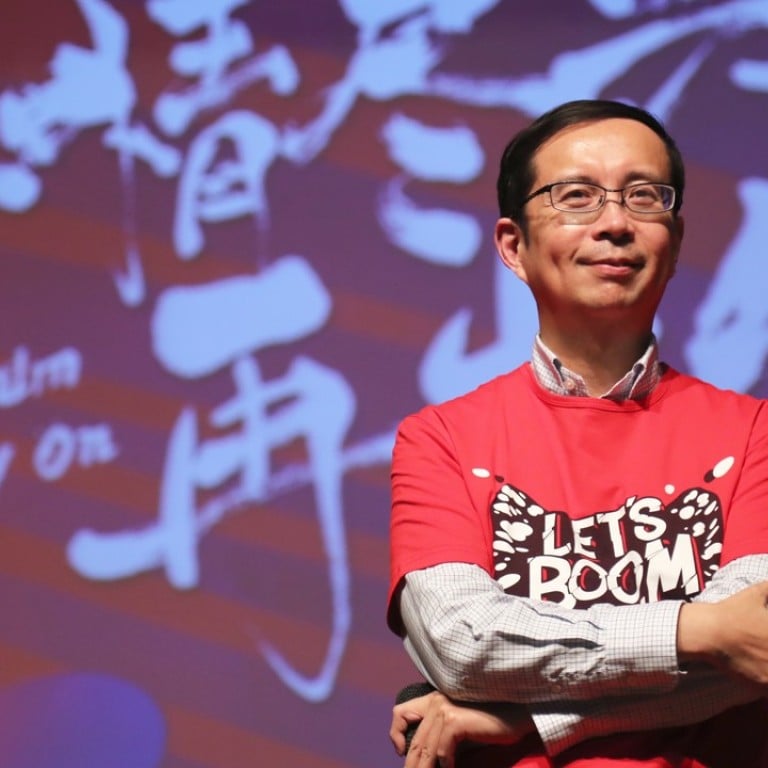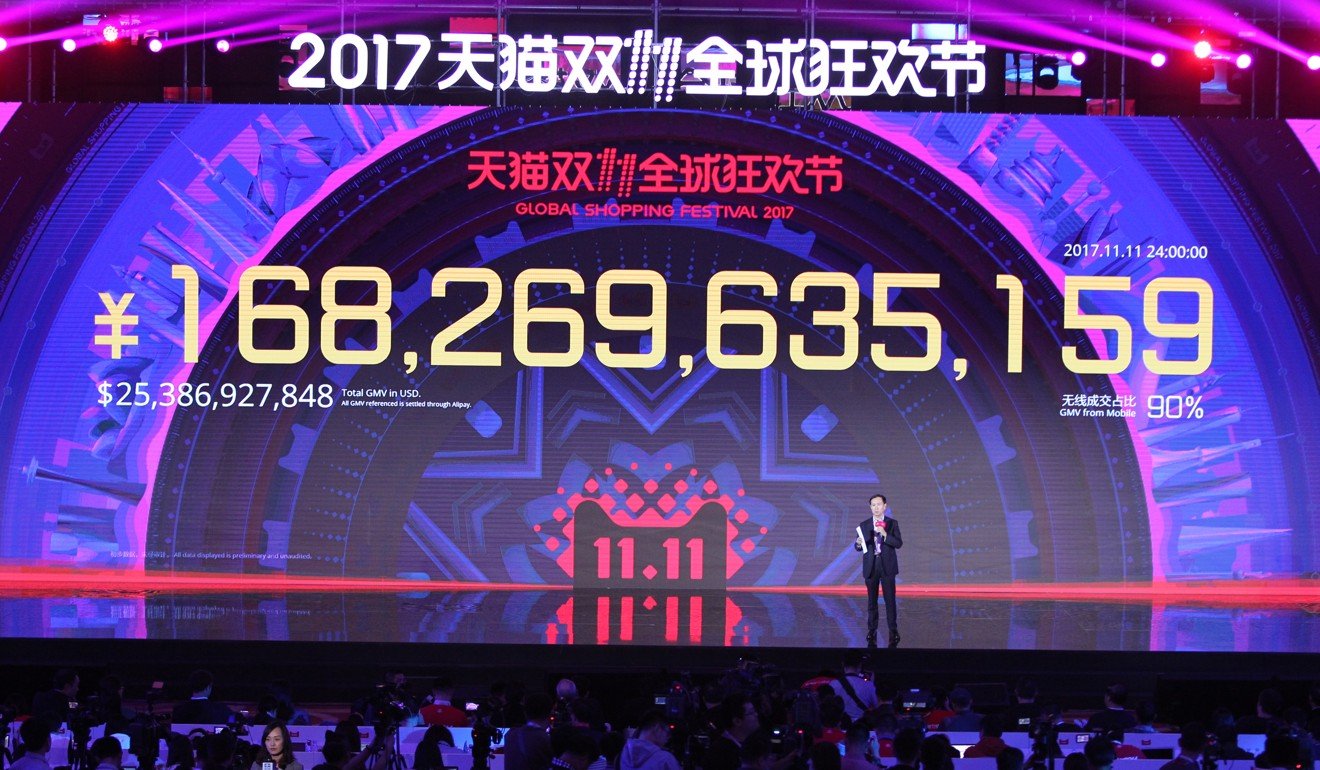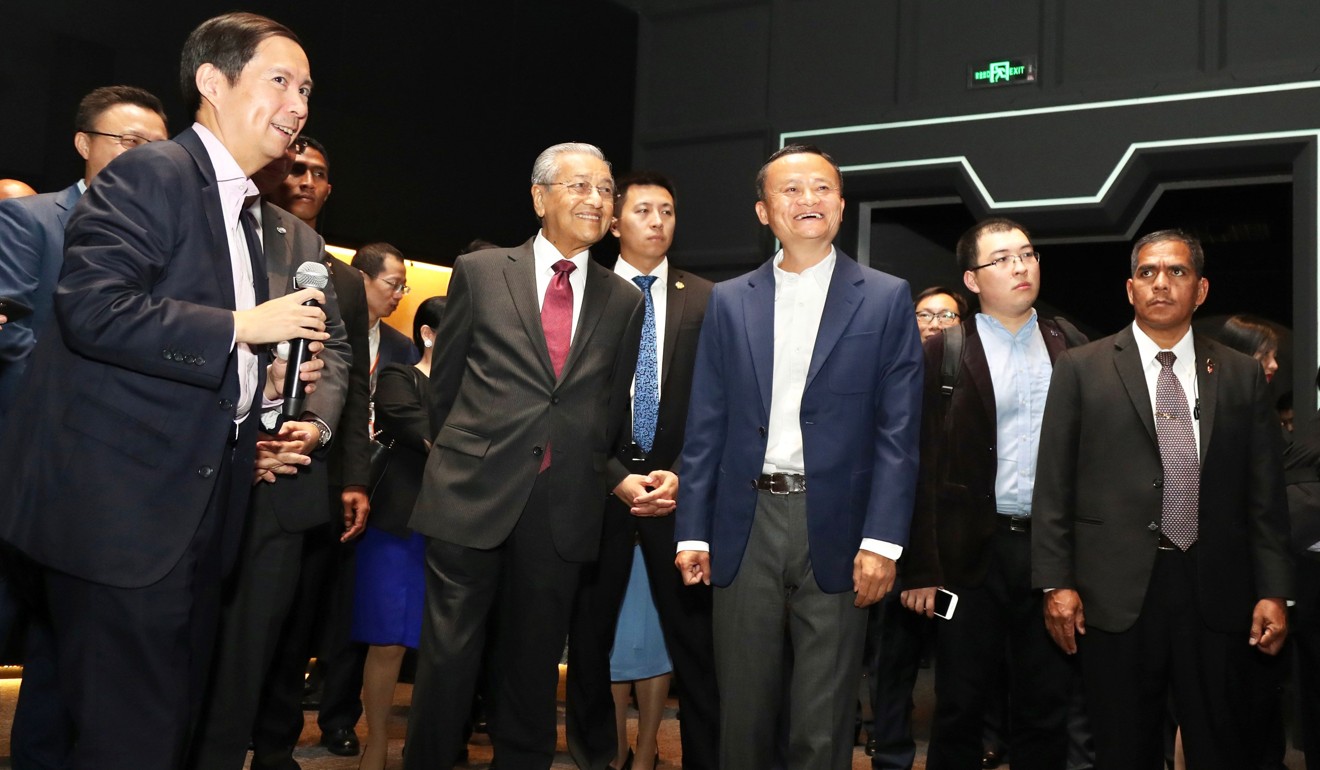
Meet Daniel Zhang, the ‘free and unfettered spirit’ who will succeed Jack Ma as Alibaba’s chairman
The succession plan comes as Ma, who co-founded Alibaba together with 17 others and has for years been the face of the company, looks to distance himself from daily operations
Among the 86,000 employees who work at Alibaba Group Holding, chief executive Daniel Zhang Yong is not known as Daniel, or Mr Zhang, or even boss.
Instead, employees refer to him as xiaoyaozi, or the “free and unfettered one”. The nom de guerre, after a character from a Louis Cha wuxia novel, has appeared on his business card, Chinese company press statements and in Alibaba’s literature.
Zhang will soon have larger shoes to fill. On Monday, Alibaba executive chairman Jack Ma Yun announced a succession plan for the company, with a transition period of one year, at the end of which Ma will step down from his role and hand the reins over to Zhang.
Since Zhang was named chief executive in May 2015, “Alibaba has seen consistent and sustainable growth for 13 consecutive quarters”, Ma said in a letter to staff, including the South China Morning Post, which is owned by the Hangzhou-based company. “His analytical mind is unparalleled, he holds dear our mission and vision, he embraces responsibility with passion, and he has the guts to innovate and test creative business models.”
The succession plan comes as Ma, who co-founded Alibaba together with 17 others and has for years been the face of the company, looks to distance himself from company operations as he shifts focus to teaching, education and philanthropy. Ma will remain the executive chairman for the next 12 months to ensure a smooth and orderly transition.
“To have a good succession plan is the litmus test of business continuity,” said associate professor Lawrence Loh, director of the Centre for Governance, Institutions & Organisations at the National University of Singapore. “Naming Daniel Zhang as the successor with a specific time frame, as well as Jack Ma staying on the board until 2020, gives a lot of certainty and assurance to not only the business community but also its investors.”

“I’ve worked closely with Daniel since 2007 when he first joined us as chief financial officer of Taobao,” said Alibaba executive vice-chairman Joseph Tsai, who was the company’s chief financial officer until 2013. “On intellect and energy, I can barely keep up with him. But it’s his thoughtfulness and humility that is most impressive as a leader.”
Zhang, 46, had previously served as chief financial officer at taobao Marketplace, president at Tmall and as Alibaba’s chief operating officer before succeeding Jonathan Lu Zhaoxi as chief executive.

“Daniel [Zhang] is a proven international business leader and innovator with a strong track record of delivering results,” Ma said in a statement in 2015 when the announcement was made that Zhang would become Alibaba’s chief executive. “He has the confidence of our entire management team, and there is no better person to lead Alibaba Group as we embark on the next stage of our growth on top of the strong foundation that Jonathan helped build.”
Since then, the Shanghai native has spearheaded the company’s mobile-first strategy for its e-commerce platforms, overseen multibillion-dollar acquisitions of companies like Youku Tudou, and is now focused on expanding the company’s New Retail strategy, which looks to combine online and offline shopping to give consumers a seamless experience while simultaneously helping to boost business for small and medium enterprises.
Under his leadership, Alibaba now has a market capitalisation of US$420.9 billion and is Asia’s most valuable firm. But Zhang is determined not to let the company’s stock price affect how Alibaba runs its business.
“Our values do not waver with the fluctuations in stock price,” he once reminded employees, according to Duncan Clark’s book Alibaba: The House That Jack Ma Built.
Zhang studied finance at the Shanghai University of Finance and Economics. Before joining Alibaba, Zhang served as chief financial officer at Chinese gaming company Shanda Interactive Entertainment and was a senior manager at PwC’s audit and business advisory division in Shanghai.
Zhang first joined Alibaba in 2007 and played a key role in helping to drive Taobao to profit. He is best known for starting the “Double 11” shopping festival, now commonly referred to as Singles’ Day, which has evolved from bringing in 50 million yuan in sales during the first festival in 2009 to 168 billion yuan (US$25 billion) last year.
Singles’ Day is now the world’s largest 24-hour shopping festival, dwarfing similar shopping bonanzas round the world, including Black Friday in the US as well as Amazon Prime Day, which last year tallied US$1 billion in sales.
“The Alibaba Partnership can be viewed as one whose purpose is to groom talent, to select 36 people who are most committed to Alibaba's mission and business and to allow those people to help manage as the company goes along,” said David Lee, a senior lecturer at the Faculty of Business and Economics at the University of Hong Kong. “If that partnership mechanism allows Alibaba to inculcate the culture and values that they want to continue to have in the organisation, then that’s beneficial.”
Zhang now has his sights set on helping Alibaba further its New Retail strategy and to expand overseas. He has overseen the expansion of Alibaba’s Hema supermarkets across the country. A typical Hema supermarket lets users shop for groceries online or offline as they please, with the option of having their purchases delivered to their doorstep. At the fresh seafood section, consumers can also request chefs to whip up hot meals on the spot.
Alibaba’s recent acquisition of food delivery service Ele.me and subsequent plans to merge it with recommendations unit Koubei is part of a broader plan to integrate on-demand delivery to other parts of its business, including Hema and e-commerce platforms Tmall and Taobao.
“We strongly believe that bricks-and-mortar stores can create huge value, but their model needs to be upgraded, and their operations need to be digitised,” Zhang said at a consumer goods conference in Singapore earlier this year.

